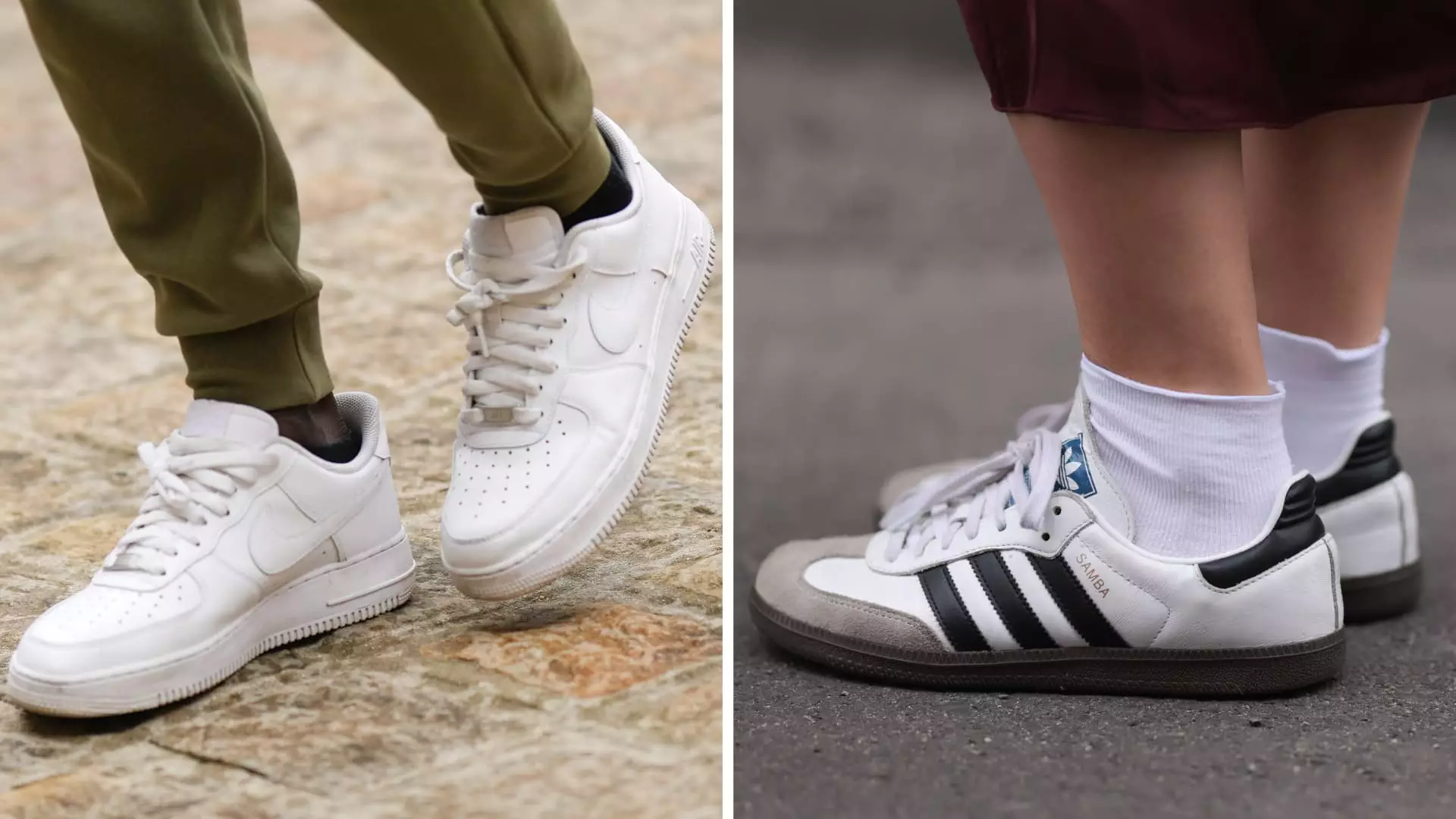In recent times, there has been a noticeable shift in the sneaker market, with young consumers turning their attention towards alternative brands like New Balance and Adidas Sambas. According to Stifel Financial, this shift could potentially pose a threat to Nike’s market dominance. While Nike still holds the crown with its popular Dunk shoe, the erosion of other areas in Nike’s shoe business is becoming evident. Analysts have pointed out that competitors offering bold alternatives are gaining momentum, reshaping the landscape of the industry.
Stifel’s back-to-school survey has revealed that consumers are increasingly embracing newness across a variety of trends, leading to the rise in popularity of challenger brands. The current product lineups at multi-branded retail stores are described as fresh, colorful, and exciting, offering consumers a plethora of options to choose from. Among the emerging trends, two styles of shoes have gained notable traction – the “dad” shoe, which includes brands like New Balance and Asics, and the “terrace” shoe, typified by Adidas’ Samba, Gazelle, and Campus lines.
While Nike’s Vomero 5 has garnered popularity in the “dad” shoe category, several of Nike’s court styles such as the Air Force 1, Jordan 1, and Blazer are reportedly losing favor among consumers. This loss of interest in staple Nike shoes is concerning, as these styles have been foundational to Nike’s dominance in the market. Additionally, other iconic Nike shoes like the Air Max 270 and Vapor Max are also facing a decline in popularity, according to analyst Jim Duffy.
Stifel’s survey data paints a bleak picture for Nike, showing a significant decline in the brand’s market share. While Nike still holds the largest share of “style references” in six retail chains, the percentage has dropped from 61.4% in 2023 to 88.2% in the current back-to-school season. On the other hand, New Balance has seen a surge in market share, rising from 7.7% to 15.5%, and Adidas has also witnessed a notable increase from 0.5% to 13.6%. This shift has prompted Duffy to revise down earnings estimates for Nike’s North America business and cut the price target on the stock.
As Nike grapples with declining market share and shifting consumer preferences, questions loom over the brand’s ability to achieve revenue growth targets in the coming fiscal year. Analysts are now speculating whether Nike can turn the tide in the fiscal fourth quarter or if the downward trend will persist. With the stock price already taking a hit in 2024 and facing the possibility of a third straight losing year, Nike is under pressure to adapt to the changing dynamics of the sneaker market.
The rise of challenger brands and the shift in consumer preferences towards alternative styles present a formidable challenge to Nike’s long-standing dominance in the sneaker industry. As the competition heats up and traditional favorites lose their appeal, Nike must innovate and adapt to stay ahead in a rapidly evolving market landscape.

